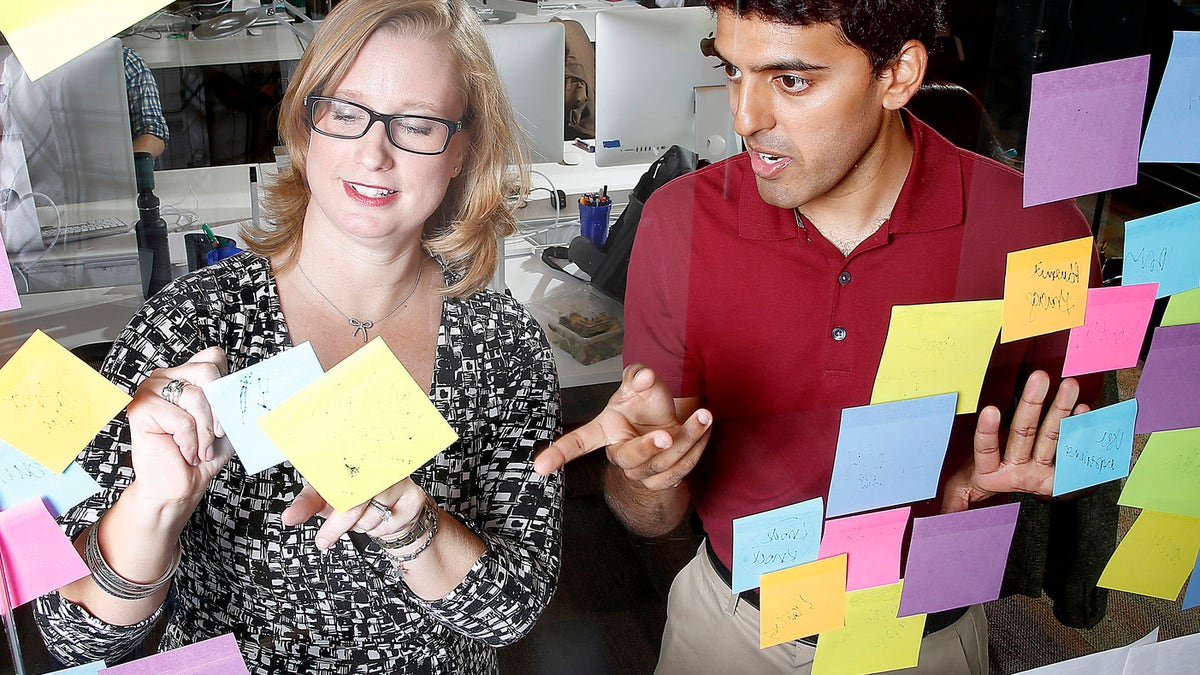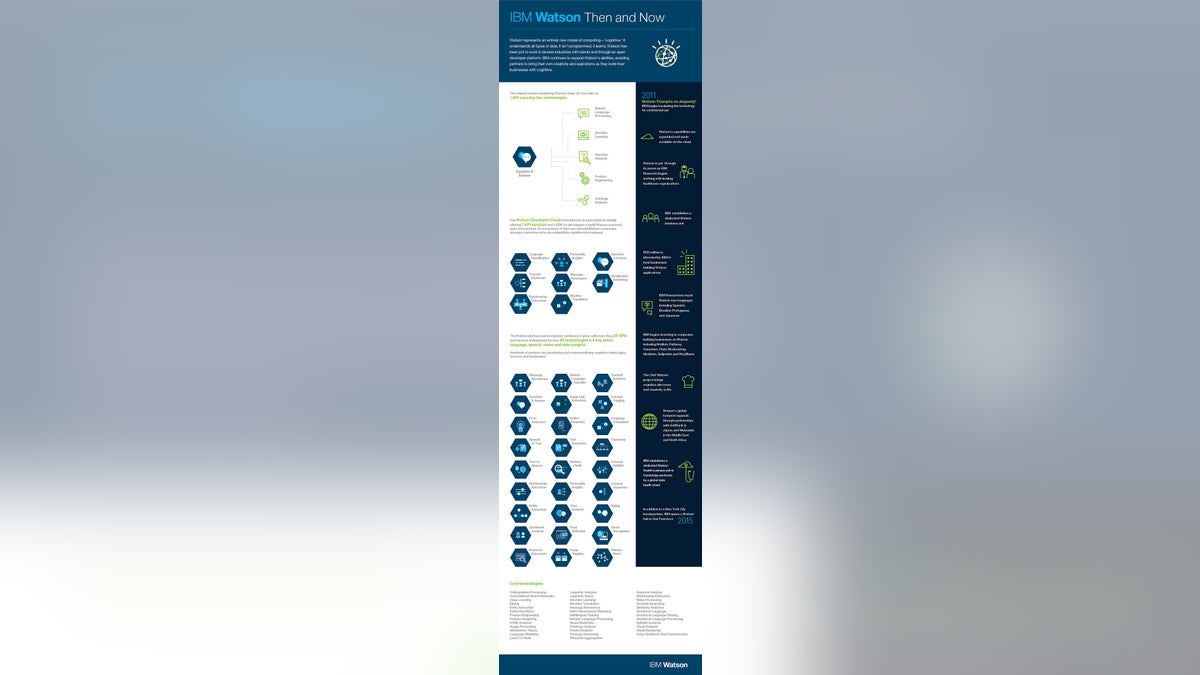
On Sept. 24, 2015, at IBM's newly announced "Watson West" hub, the company unveiled it is making new Watson APIs available to developers, entrepreneurs and businesses. (Tony Avelar/Feature Photo Service for IBM)
IBM’s Watson is fast becoming the smartest cognitive computing system around. On Thursday, IBM announced that Watson expanded its set of cognitive APIs (application program interface) and tools available to developers who create apps and products using the supercomputer’s capabilities. The move further solidifies Watson’s reach in a number of industries from law to healthcare and education. The announcement was made at IBM’s forum on cognitive and artificial intelligence where the company announced a new West Coast hub for Watson in San Francisco.
“Today, publicly, Watson’s capabilities are available to 28 different services. This week, we are announcing new platforms, the benefits of the development of a broader community, it’s an exciting time for us,” IBM Watson Vice President Steve Gold told FoxNews.com. “We went from really three partners in our partner network – our ecosystem – 20 months ago to 100s of partners now.”
What does this mean? Well, for IBM’s Watson, which first became famous as the human-beating “Jeopardy” champion back in 2011, the goal is to be viewed less as an oddity or a fun diversion and more as a tool that can be applied across industries.
“The part that doesn’t come to the masses when it comes to Watson is the fact that this technology has moved beyond research, it’s moved beyond commercial work, it’s moved to where you and I can experience its [Watson’s] work,” Gold asserted.
The various companies and startups announced as new Watson partners on Thursday hailed from a wide cross-section of fields. For instance, ORRECO, a company that provides biomarker analysis, is using an app called Coach Watson to help some of the world’s top athletes reach their nutrition, health, and training goals. From sports to human resources, UnitesUs, a cloud-based hiring and recruitment platform, is taking on Watson’s cognitive language capabilities to match hiring organizations with possible employees based on company cultural fit, qualifications, and personality types. InterActive-BB used Watson to develop InterActivePlanning.com, which gives state-by-state answers to questions from patients regarding health and family care, such as Medicaid, Medicare, and VA payments.
Core to many of these apps, especially those being used by UnitesUs and InterActive-BB is Watson’s sophisticated natural language processing capabilities. Language is a key point in Watson’s continued growth, with a crucial moment being IBM's March acquisition of AlchemyAPI, a startup that offers cognitive computing software for natural language processing.

IBM Watson, then and now. (IBM)
In July the company’s announcement of a partnership with Mubadala, the investment branch of the government of Abu Dhabi in the United Arab Emirates, gave Watson the capacity to learn Arabic, similar to SoftBank’s partnership that brought Japanese to the supercomputer. Add that to Spanish and Brazilian Portuguese (along with English) and Watson is becoming quite the language whiz.
Gold asserted that language is one of the keys to Watson’s growth.
“It pushes us to a global perspective much further,” he said.
Thursday's announcement also trumpeted the computer's capabilities in "vision," meaning IBM Watson Visual Insights service, which gives developers the ability to fashion apps that utilize video images and social media content.
With 100 of IBM’s partners having introduced cognitive-powered apps and products to the marketplace, the announcement of a San Franciscan hub for Watson -- "Watson West" -- gives the supercomputer a bi-coastal perspective. Until now, Watson has mostly been an East Coast fixture, anchoring the so-called “Silicon Alley” in New York City. Gold said that a presence in Silicon Valley will give Watson access to the startup muscle found on the West Coast.
“IBM has always had a presence in the Valley for decades,” Gold added. “With Watson Health’s headquarters in Boston, and now Watson in San Francisco, we are finding ways to bring this technology much closer to users, to developers who come from different points of view.”
How does it feel to see Watson grow in such a short period of time?
“I’m smiling remembering January, a year ago, introducing the Watson Group. A lot of folks said ‘this is really interesting, but no one has been able to really do this,’ ” he said. “And we have.”








































